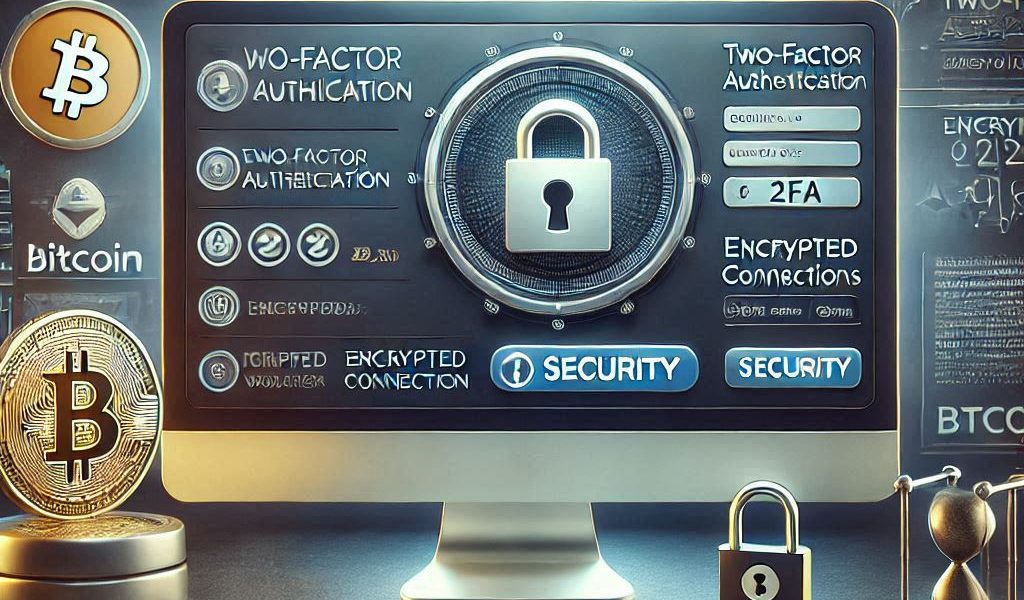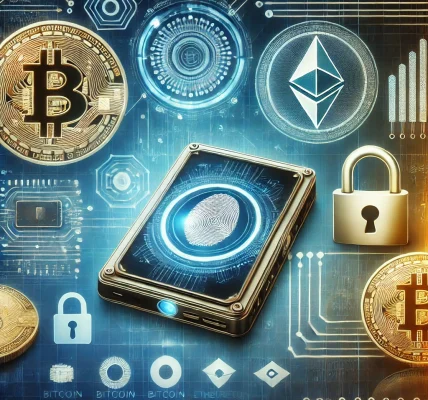As cryptocurrencies continue to grow in popularity, more and more people are turning to cryptocurrency exchanges to buy, sell, and trade digital assets. However, with the rise in crypto adoption, the need for robust security measures has never been more critical. The security of a cryptocurrency exchange is paramount because it involves your hard-earned money, personal information, and the safety of your assets. This blog will guide you on how to evaluate the security of a cryptocurrency exchange before you trust it with your funds.
1. Understanding the Importance of Exchange Security
Before diving into how to evaluate an exchange’s security, it’s essential to understand why security matters so much in the crypto space. Unlike traditional financial systems, the cryptocurrency market operates without central authority oversight, making it more vulnerable to cyberattacks, hacking, and fraud. Since cryptocurrencies are decentralized and transactions are irreversible, once your funds are lost or stolen, there’s little chance of recovery.
To protect yourself, it’s critical to choose an exchange with strong security measures in place. This will help minimize the risk of losing funds due to cybercrime or malicious activity.
2. Look for Strong Authentication Methods
One of the most important security features for a cryptocurrency exchange is the authentication process it uses. The best exchanges will employ strong authentication methods to protect user accounts from unauthorized access.
- Two-Factor Authentication (2FA): Ensure that the exchange offers two-factor authentication. 2FA adds an extra layer of protection by requiring you to verify your identity with a second factor, such as a one-time code sent to your phone or email, in addition to your password. This significantly reduces the risk of unauthorized access to your account.
- Multi-Signature (Multi-Sig) Authentication: Multi-sig requires more than one private key to authorize a transaction, which can prevent unauthorized access even if one of the keys is compromised.
Make sure the exchange supports 2FA and, ideally, multi-signature options to bolster your account’s security.
3. Check for Cold and Hot Storage of Assets
Cryptocurrency exchanges store user assets in two primary types of wallets: hot wallets and cold wallets.
- Hot Wallets: These wallets are connected to the internet and are used for active trading. While convenient, they are more susceptible to hacking because they are online.
- Cold Wallets: Cold wallets are offline storage systems that are not connected to the internet. They are much safer because they are not vulnerable to online attacks.
A secure cryptocurrency exchange will store a significant portion of its assets in cold wallets, keeping the majority of funds off the internet and away from potential hackers. Always check the exchange’s wallet storage practices and ensure they use cold storage for most of their funds.
4. Assess the Exchange’s History of Security Breaches
A cryptocurrency exchange’s past can provide valuable insights into its security standards. Research whether the exchange has experienced any security breaches or hacks in the past and how they responded.
- Did the exchange notify users immediately?
- How did they handle the situation?
- Were they able to recover the stolen funds or reimburse affected users?
An exchange with a history of breaches may not be as trustworthy as one with a clean security record. Look for exchanges with a track record of managing and securing user funds effectively.
5. Regulatory Compliance and Licensing
An exchange that complies with financial regulations is more likely to be secure because it adheres to industry standards designed to protect customers. Check if the exchange operates in a jurisdiction with strong regulatory oversight and whether it has obtained licenses or certifications.
For example, in the U.S., cryptocurrency exchanges must comply with the Financial Crimes Enforcement Network (FinCEN) regulations and the Securities and Exchange Commission (SEC) guidelines. Many reputable exchanges are also registered with financial authorities in Europe, Canada, and Asia.
Exchanges that are fully compliant with regulatory standards are generally more trustworthy, as they are held accountable to stricter security measures and transparency.
6. Evaluate the Exchange’s Security Features and Tools
Reputable exchanges implement various security features and tools to further protect user data and funds. When evaluating an exchange, consider the following:
- Insurance Coverage: Some exchanges offer insurance policies to protect users in the event of a security breach or hack. This can provide additional peace of mind, as it ensures that you may be reimbursed in case of a breach.
- Encryption: Ensure that the exchange uses industry-standard encryption protocols, such as SSL (Secure Socket Layer) encryption, to protect your data and personal information during transactions.
- Withdrawal Whitelists: Some exchanges allow you to set up withdrawal whitelists, which enable you to specify a list of trusted addresses for withdrawals. This feature prevents hackers from transferring your funds to unauthorized wallets.
- Regular Security Audits: Reliable exchanges perform regular security audits to identify and fix vulnerabilities. Ask the exchange whether they undergo third-party security audits and if those audits are publicly available.
7. Read Reviews and User Feedback
Before choosing an exchange, it’s a good idea to check online reviews and user feedback on trusted forums, such as Reddit, Trustpilot, or specialized cryptocurrency communities. Look for reviews from actual users who share their experiences regarding the platform’s security, customer service, and reliability.
While reviews may not always paint a full picture, they can provide insights into how secure and trustworthy the exchange is from a user perspective. Take note of any recurring security complaints or issues raised by multiple users.
8. Test the Exchange’s Customer Support
Even with the most secure systems in place, things can go wrong. That’s why it’s essential to assess the quality of customer support on offer. A cryptocurrency exchange with prompt, helpful, and responsive customer support is a good indicator that they care about user security and satisfaction.
Test the exchange’s customer support by reaching out with questions regarding their security practices. You can gauge their responsiveness and professionalism, which will be helpful in case you ever need assistance with securing your account.
9. Be Aware of Phishing Scams
Phishing scams are a common method used by cybercriminals to gain access to user accounts by tricking individuals into revealing their login credentials. Always be cautious when receiving unsolicited emails or messages that appear to be from the exchange.
Never click on links in suspicious emails or text messages, and always double-check the website’s URL to ensure you’re on the official exchange site. Be especially wary of “too-good-to-be-true” offers that may come through email or social media.
10. Conclusion: Choosing a Secure Cryptocurrency Exchange
Security should be your top priority when selecting a cryptocurrency exchange. A trustworthy exchange will employ multiple layers of security, including strong authentication methods, secure wallet storage, regulatory compliance, and proactive measures to prevent hacks.




